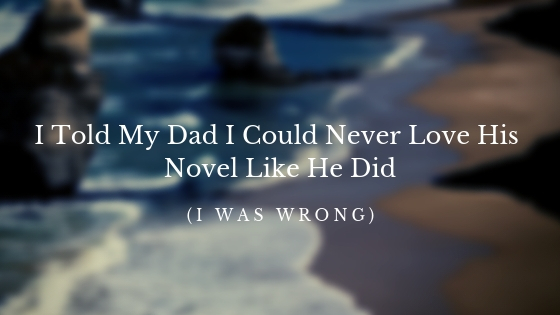
I Told My Dad I Could Never Love His Novel Like He Did (I Was Wrong)
I get it, Dad. It’s your baby, I said.
He’d just finished the most current of several iterations of his novel and now he was trying to persuade me to edit it.
You’ll love it, he insisted.
But I’d been to the conferences. Something the panel speakers would regularly caution us doe-eyed aspirers was, “Remember. When you’re looking for editors or for representation, you can’t expect people to love your baby the way you do. You can’t take it personally when they don’t. It’s the universal rule of babies.”
Please. I’ve gotten it as far as I can get it alone, he said. But his most frequent persuasion piece was: I’ll die one day and you’ll regret you never helped me.
Empty Threats: An Apparent Staple of Parenthood that Rarely Works
I’ve long considered, in the fondest way possible, that my dad can very often share qualities with man’s best friend: patently adorable, craving of affection, and with eyes full of plaintive and impatient accusation if his wants are being held at bay. I took his threats of mortality with a grain of salt; he doesn’t have the lifespan of a dog after all.
Though the novel itself has been a decades-long passion project for him, I put him off for years, and not without valid reason. I was working full time, and for the job in question, I wrote. I was also a part-time undergrad, hoarding internship credit as a working copywriter and eventual content manager.
As an undergrad, I reveled in the academic world, eager for my upper level, critical-theory-and-creative-writing-focused coursework, but as a professional copywriter I was passionless, and as a content manager, largely ineffectual. Regardless, I was busy. Any free time I had, I spent neglecting my then-husband by trying to write on my own perpetually ongoing projects, often burned out by the demands of my day job and schoolwork.
Then came leaving my job and focusing full-time on my degree, then graduation, and then striking out as a freelance copywriter.
I’ll do it if you pay me, I said to him at last. And in June 2016, my dad became my first client.
The experience of rewriting this novel for and with my dad has been transformative.
Embarkment: Rewriting My Dad’s Passion Project
I want to preface by stating that my dad and I share few ideological convictions, though our personality traits are admittedly similar. (My dad’s not dog-like alone. I regularly and willingly compare myself to Kylo.)
In retrospect, this may have been why I was dubious that I would come to love his characters as he’d promised, or even that we’d work entirely well together as co-authors. (From the beginning, it became apparent that calling myself his editor wasn’t quite accurate. This was a wall-to-wall rewrite.) I think I can say at this point that I was wrong on the second count as well—we made a good team.
My dad is a wonderful storyteller, if not a trained writer as I’ve hurled myself into becoming, and the story he’d worked so hard to tell, though fictional, draws immensely from the personal, the real: the setting is the Mexican State of Jalisco—his birthplace—and many of the major and minor characters are spiritual incarnations of the people who had peppered his life there: the town priest who’d forbidden cinema in the village, the nuns who had given my father his first education, whetting his thirst for academia and overachieving—nuns who told him as a boy that he wouldn’t become a man until he had learned to part his hair, planted a tree, and written a book.
Falling In Love With Pedro Arriaga, Margarita Olivieri, and Doña Dina
Pedro is a striking simulacrum of my dad, raised and inspired by the women of his life, a seed of potential, sensitivity, intellect, and ambition.
In Margarita’s diminutive frame and fierceness, I recall the yellow-stained image of my late abuela on her wedding day—lovely and youthful. In fact, too young, younger than even I had been on the day I’d become a teenaged bride. I saw myself in her, and unavoidably, in the rewriting of my dad’s novel, I began to see myself in Margarita too.
Then there’s Dina, a force of reckoning and a feminist firebrand, an anomaly birthed from the late 19th century. I wanted to see myself in her.
My dad created them, but in his words, over the past three years of rewrites, I gave them flesh, and that was all that he’d wanted.
What It was Like Writing that Final Line (A Snapshot)
The experience of rewriting this novel for and with my dad has been transformative. In other words, it’s given me plenty to write about.
I wrote the last 9000 words of the draft in a three-day sprint at my parents’ house in October 2018, my dad pacing outside the closed office door when he wasn’t bringing me ponche (in this case, non-alcoholic punch), cajete (caramel he’d made in the backyard as I wrote. When giving my eyes a screen-break, I could see him through the office window, stirring it in a great big metal vat over an open fire, with my abuelo taking turns), and a big bowl of laboriously hulled pomegranate seeds—offerings to keep me sated, seated, and typing.
When I finished, I sent this text to one of my best friends two states away, who was watching Kylo:
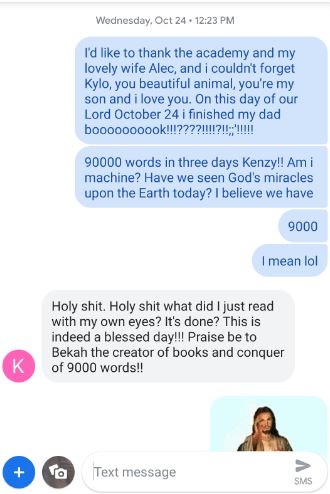
So Where’s This Book Now?
We’re calling it The Music of Pedro (MoP) and the latest draft is with beta readers now. Then comes the next round of edits based on their feedback.
We’re opting to make it a complete family endeavor and to self-publish digitally with a launch party in the works for November 8, 2019! [My brother, the eminently talented Saint Down (@saint_down on Insta), will be doing the cover art and insert illustrations.]
This blog will be my main platform for updates, so if you’re interested in one day reading what can reasonably be construed as the product of preemptive death-bed coercion (i.e., a labor of love) make sure to subscribe to get my emails!


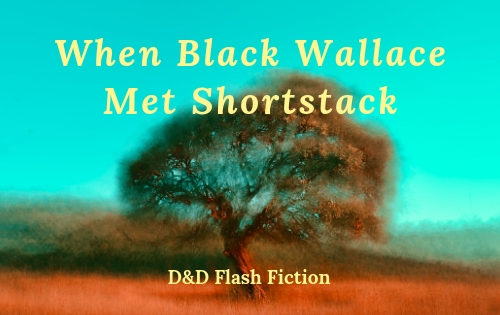
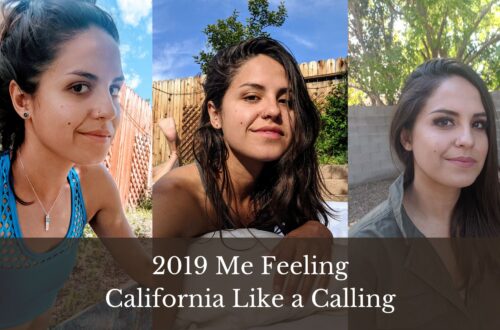
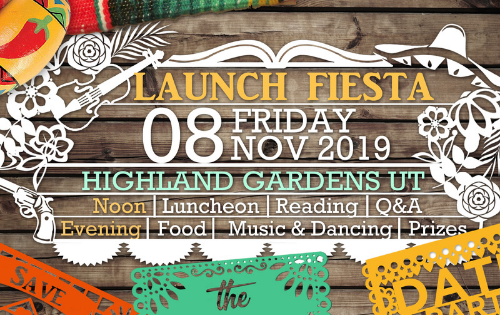
One Comment
Angela
I love it!!! I am so excited about this! I’m so proud of you both 🙂 No wonder Dad fought so hard for you to be his editor. You are a master of words! I love you!